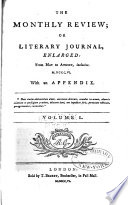 | Ralph Griffiths, George Edward Griffiths - 1806 - 582 pages
...remarkable condttions bslonging to such quantities as m V 1 , &c. In the tmpact of elastic bodies, the sum of the products of each body into the square of its velocity is constant, or m V 1 + m'V1 +• mfV" 1 -\- &c. = a. In machines which change their motions by insensible... | |
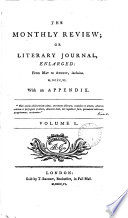 | 1806 - 614 pages
...remarkable confluions •bílcni^n^ to such quantities as -m F-*, ôcc. In the impact of .elastic bodies, the sum of the products of each body' into 'the square of ils velocity is constant, or m If* -\- т'Уг -f»/;"F"*+ £c. '= л. In rrnchiries which change their... | |
 | 1807 - 574 pages
...theorems relative to the centre of gravity •, i'n which the distan« of the centre is determined by the sum of the products of each body into the square of its distance from any point. The first theorem of this kind was proposed liy La Grenge in the Berlin Memoirs... | |
 | Ralph Griffiths, George Edward Griffiths - 1807 - 572 pages
...theorems relative to the centre of gravity •, in which the distance of the centre is determined by the sum of the products of each body into the square of its distance from any pdint. The first theorem of this kind was proposed by La Grange in the Berlin Memoirs... | |
 | John Playfair - Astronomy - 1812 - 344 pages
...distance of the centre of oscillation of a compound pendulum, from its centre of suspension, is equal to the sum of the products of each body into the square of its distance from the centre of suspension, divided by the sum of the products of each body into the simple... | |
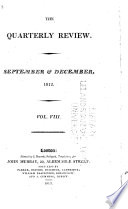 | William Gifford, Sir John Taylor Coleridge, John Gibson Lockhart, Whitwell Elwin, William Macpherson, William Smith, Sir John Murray IV, Rowland Edmund Prothero (Baron Ernle) - English literature - 1813 - 540 pages
...increasing series the sum of ail the motions in the direction of the first mover continues = A a. Also the sum of the products of each body, into the square of its velocity, alter collision, remains as it was before, equal to A a*.' Altogether, we think the section on the... | |
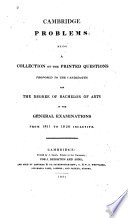 | University of Cambridge - Mathematics - 1821 - 254 pages
...respectively. , » 3. In the direct impact of perfectly hard bodies, the difference between the sums of the products of each body into the square of its velocity before and after impact, is equal to the sum of the product of each body into the square of the velocity... | |
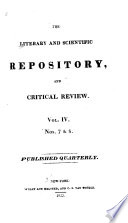 | 1822 - 520 pages
...the last, the sum of all the motions in the direction of the first motion, is never greater than An. The sum of the products of each body into the square of its velocity also remains the same as it was before, namely Aa 7 . PI.AYFAIR, § 77. If the bodies be not perfectly... | |
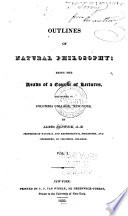 | James Renwick - Physics - 1822 - 476 pages
...oscillation of a pendulum composed of everal bodies from its point of suspension may be found by dividing the sum of the products of each body into the Square of its distance from its point of suspension, by the sum of the products of each body into its distance from... | |
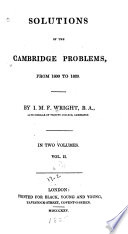 | John Martin Frederick Wright - Mathematics - 1825 - 798 pages
...find the ratio of the relative velocity before impact to the relative velocity after impact ; and show that the sum of the products of each body into the square of its velocity before impact, is greater than the sum of the products of each body into the square of its velocity... | |
| |